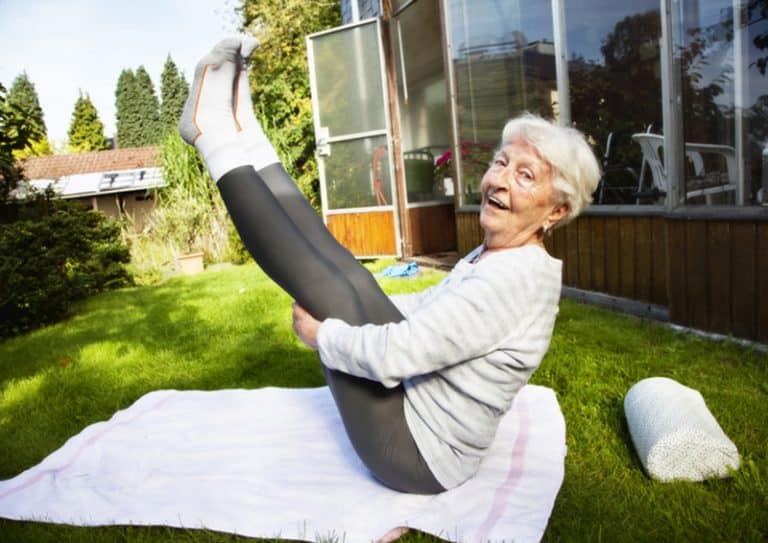There’s no question about the many benefits that physical fitness provides for senior, but what is not as well known is that exercise for seniors with Alzheimer’s disease and other kinds of dementia can be specifically helpful in a variety of ways. It can help reduce the risk for muscle weakness and other issues that stem from a sedentary lifestyle, can decrease the impact of psychological and behavioral changes, and more.
Similar to anyone who is considering starting a new exercise routine, a doctor should first be consulted. Then, try incorporating more physical activity into each day for a senior loved one with dementia, applying the following tips in accordance with each individual’s capabilities and the appropriate stage associated with the disease:
Beginning Stages
Seniors experiencing the early stages of Alzheimer’s can enjoy fairly active and social exercises, such as things like swimming, dancing, golf, walking, and bowling, though some degree of guidance and oversight may be required. In time, increased supervision will likely be needed as the disease advances.
Mid to Late Stages
The mid to later phases of Alzheimer’s disease are often accompanied by heightened levels of confusion and anxiety. With that in mind, loud or overstimulating activities should be avoided. Repetitive exercises, including indoor bicycling and walking, as well as tasks like folding laundry, help to reduce anxiety levels as the senior does not have to make any judgments related to the activity or try to recall what to do next.
Advanced Stages
When seniors start to experience the late stages of Alzheimer’s, children’s playthings may be effective in supporting hand-eye coordination. These toys are often colorful, easy to hold, and are built to stimulate the brain. Additionally, stress balls or soft clay-like products can be squeezed to help strengthen the muscles in the hands.
Happier Home Care’s care professionals are extensively trained and experienced in creative, kind, and thoughtful care for seniors with Alzheimer’s disease or another form of dementia, and we are always prepared to help families maximize wellbeing for the seniors they love. We are proficient in helping to successfully manage such overwhelming behaviors as sundowning, aggression, wandering, and much more, and can provide overnight respite care to allow family caregivers to get a good night’s sleep while knowing their senior loved one is safe and secure.
Reach out to us online or at 818-651-6679 to learn more about our specialized in-home dementia care, or to request more tips and resources specific to the challenges you are facing. We’re pleased to offer elder care in Glendale and nearby areas that helps keep seniors safe at home.
